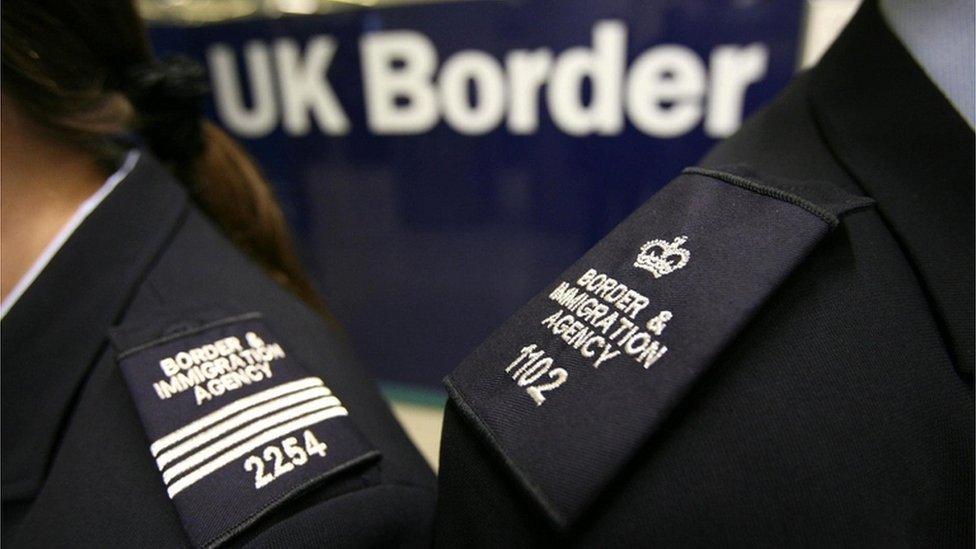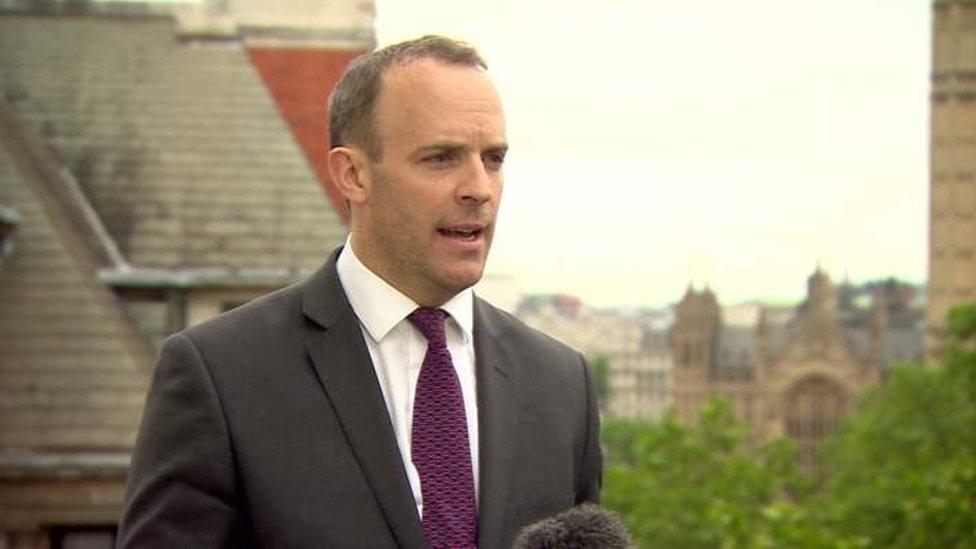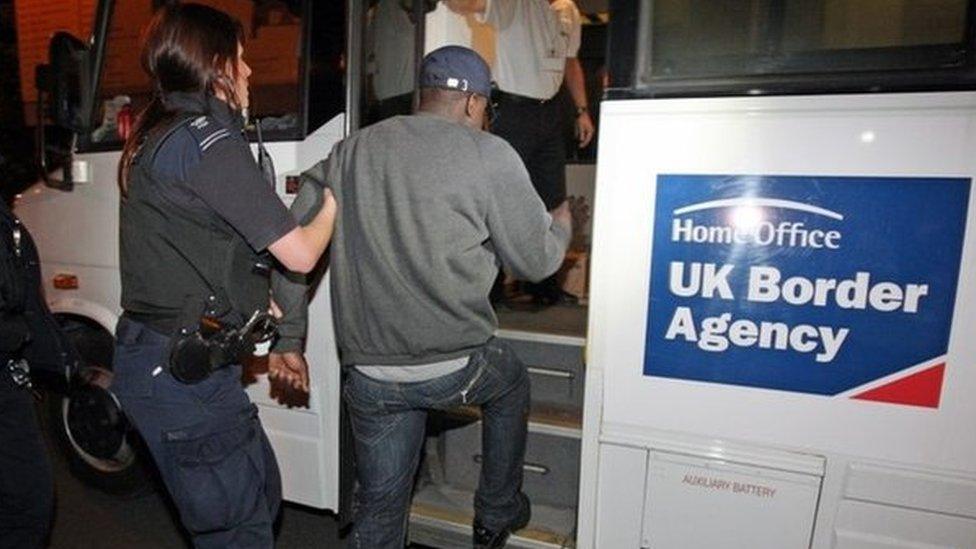EU laws 'prohibit UK from sending foreign criminals home'
- Published

EU free movement rules weaken the UK's ability to remove foreign criminals from the country, justice minister and Leave campaigner Dominic Raab has said.
Vote Leave has published an "illustrative" dossier of 50 criminals the UK has been unable to deport.
Mr Raab said British families were being put at risk - and argued leaving the EU would make the UK "safer".
Immigration minister James Brokenshire, who backs Remain, said the UK had deported 6,500 EU criminals since 2010.
And he said Prime Minister David Cameron's EU renegotiation gave the UK greater control over deportation - but Mr Raab said the EU had "refused any change" to the rules.
The row comes with just over two weeks to go until the UK votes on whether to stay in or leave the EU, in a referendum on 23 June.
Meanwhile, in other EU referendum campaign developments:
David Cameron will be questioned by a live studio audience on ITV at 21:00 BST
UKIP leader Nigel Farage will appear directly after the prime minister
Hitachi has said it will rethink UK investment in the event of Brexit
Remain campaigners say UK firms face £34.4bn of trade tariffs outside the single market
Speaking on BBC Radio 4's Today programme, Mr Raab said the 50 cases in Vote Leave's dossier were an "illustrative set of examples of the kinds of people" the UK cannot remove from the country because of EU rules on freedom of movement.
He was unable to say how many of the criminals were currently in prison, but said they had been convicted for a year or more for offences ranging from murders to "mid-ranking crimes" such as drug offences and fraud.
"We've tried to deport them and can't which means all of them will be released or have been released into the community," Mr Raab told Today.

Mr Raab said EU free movement rules allow foreign criminals to stay in the UK
He added: "It is putting the British public at risk because it effectively means we import criminal risk into the country and then the EU rules tie our hands in dealing with it."
He said Vote Leave was not saying "you can't remove anyone" but argued that the deportation threshold was higher for EU nationals than non-EU nationals, saying eight times as many offenders from countries outside the EU were removed in 2015.
"That shows you the difference in operational bite between the rules in relation to EU nationals and non EU nationals," he added.
Arguing in favour of an EU exit, he said the UK would be able to "regain" control of its borders and deport more foreign criminals from the EU, which, he said, would make the country "safer".
He also insisted extradition relations would continue with the EU if the UK voted to leave on 23 June, saying there would be "no public protection lost from being outside" the bloc.
"If you look from Passenger Name Records, to co-operation with Europol, to extradition - these are all things you can have whether you're in or out of the EU but the one thing you don't get unless you're out of the EU is control of your borders."
'Safer in'
Responding to Vote Leave's claims, Mr Brokenshire said: "The UK sought greater control over the deportation of foreign criminals in its EU renegotiation - and that's precisely what the prime minister's deal delivered."
He said the UK's ability to deport foreign criminals had been "strengthened", allowing the UK to take into account "the full background of a criminal in a decision over whether to deport".
The minister added: "The bigger picture is that our access to the European Arrest Warrant has allowed us to deport 6,500 European criminals since 2010. That's 130 times the number of criminals Vote Leave have identified.
"If we left the EU, we could no longer use the European Arrest Warrant. That's just one of the reasons we are safer inside the EU, where we can co-operate to deal far more effectively with crime and security."
A report by the Home Affairs Committee said last week that failure to deport 13,000 foreign criminals - equivalent to a "small town" - would lead people to "question the point" of the UK remaining in the EU.
The MPs said it was "deeply concerning" that 5,789 overseas criminals were free in the UK, more than anytime since 2012 - but the Home Office said it deported record numbers of EU criminals last year.
Court ruling
Vote Leave also picked up on a ruling by the European Court of Justice, saying it could put the UK's security at risk.
The ECJ said non-EU migrants illegally entering an EU state in the passport-free Schengen zone should not face detention on those grounds - and should instead be returned to the country they came from under a directive giving them up to 30 days to go voluntarily.
The ruling does not apply to the UK or Ireland, which are not within the Schengen zone.
But Mr Raab said the ruling increased the risk of illegal immigrants entering the UK, "because it weakens the ability of other EU governments to put in place proper checks".
Labour MP and Remain campaigner Emma Reynolds said Vote Leave was "misleading people yet again", adding: "They know perfectly well that this court ruling does not apply to the UK because we are exempt from this directive."
- Published3 June 2016
